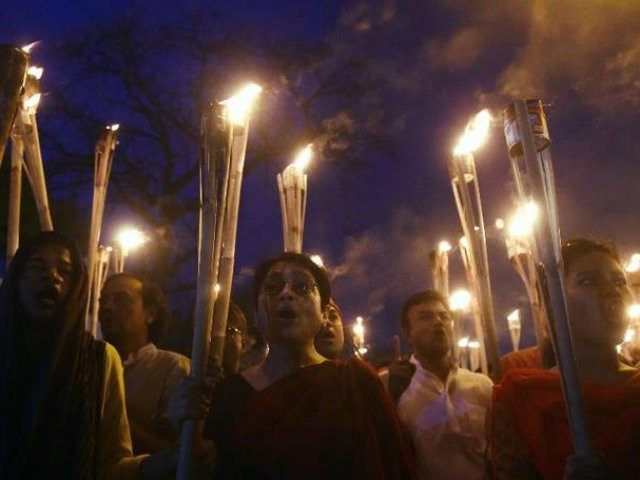For the third time this year, Islamist radicals in Bangladesh hacked a secular writer to death in public.
Four masked men chased down Ananta Bijoy Das Tuesday morning as Das left his home in Sylhet. They hacked him with machetes after running him down.
“Ananta died on the spot,” Metropolitan Police Commissioner Kamrul Hasan told the Daily Star. “Ananta was an organiser of local progressive publication outlet Jukti (logic) and a relentless writer on science.”
Das was 31.
On March 30, Oyasiqur Rahman Babu, 27, wasmurdered on his way to work. Like Das, Babu’s writings criticized religious fundamentalism.
On Feb. 26, American citizen Avijit Roy waskilled, and his wife severely injured, when attackers jumped them at a book fair. Roy had been threatened for his writings against religion, includinghis statement that religious extremism is like a virus: “if allowed to spread [it] will wreak havoc on society in epidemic proportions.”
An al-Qaida branch claimed credit for Roy and Babu’s murders.
A fourth secular activist, Ahmed Rajib Haider, was attacked and killed in February 2013.
Das, Babu and Roy were part of a movement, Shahbag, which advocated the death penalty for Islamist leaders convicted for murders and other attacks at the end of the 1971 war that saw Bangladesh break away from Pakistan.
An official with the Islamic Circle of North America, Ashrafuzzman Khan, was convictedin October 2013 in connection with the kidnapping and murder of 18 intellectuals at the war’s end. He remains in the United States.
In a posting Monday that turned out to be his last, Das lashed out at police over their failures to stop the attacks on Roy and Babu even though officers were nearby. “Later the police claimed there had apparently been no dereliction of duty. One would love to know what their duty was,” he wrote.
He called them “paper tigers when women were being molested one by one before an audience of thousands at the new year celebrations.” When protests resulted, “the police pounced on them, injuring university students with the butts of their guns and their boots. Here too I was told that the police had not abandoned its responsibility. But I’m very keen to know what the real responsibility of the police is.”
Das, along with Haider, Roy and Babu, died because his opinions were deemed unacceptable to some of Bangladesh’s radical Islamists.
But this is an international phenomenon that shows no sign of waning.
Last week in Texas, two radical Islamists tried to massacre people who attended a cartoon exhibit and contest involving the Muslim prophet Muhammad. And, of course, 12people were gunned down at the offices of French satirical magazine Charlie Hebdoin January by two brothers who boasted they had “avenged the prophet” by slaying those who dared to publish his caricature.
This article originally appeared at the Investigative Project on Terrorism.

COMMENTS
Please let us know if you're having issues with commenting.